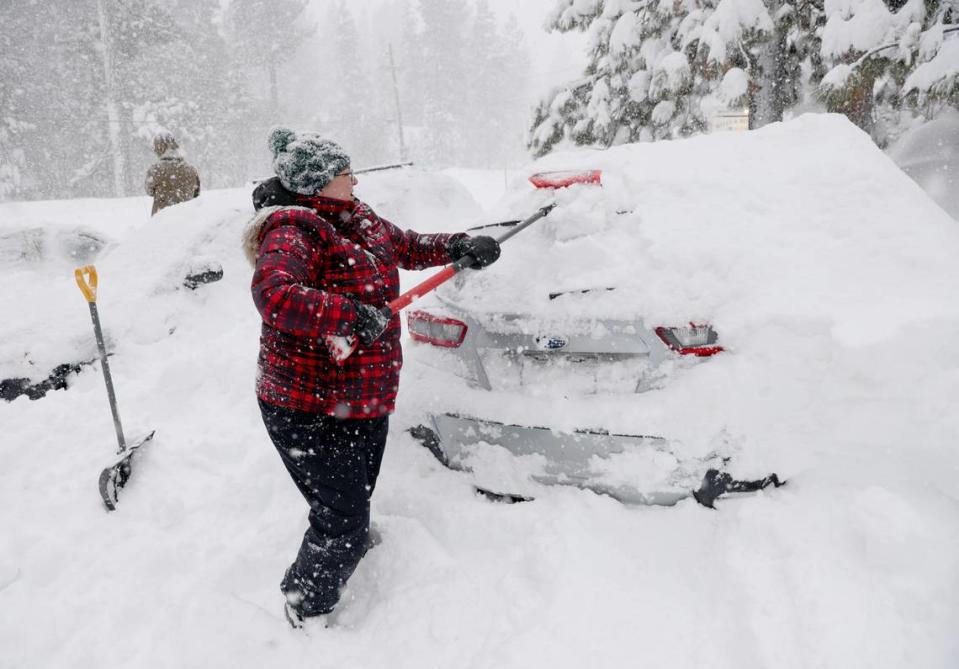

The day after that report’s release, Rand Simberg, at the time an adjunct scholar at Competitive Enterprise Institute, published a blog post on the think-tank’s website comparing Prof Mann to Sandusky. “Mann could be said to be the Jerry Sandusky of climate science, except that instead of molesting children, he has molested and tortured data in the service of politicised science that could have dire economic consequences,” Simberg wrote.
A few days later, Mark Steyn, an author and then guest host of conservative radio and television shows, republished part of Simberg’s post on National Review online. “Michael Mann was the man behind the fraudulent climate-change ‘hockey-stick’ graph, the very ringmaster of the tree-ring circus,” Steyn added in his own commentary.
In short order, Prof Mann filed his lawsuit.
The scientific consensus on climate change has been clear for 20 years now. A 2004 paper that reviewed more than 900 scientific studies about climate change did not find any that rejected the idea that human activity is producing greenhouse gases that are warming the planet.
But public acceptance of that fact has fluctuated.
In 2008, 71 per cent of Americans acknowledged that climate change was happening, according to a long-running bi-annual survey conducted by the Yale Programme on Climate Change Communication and George Mason University. But between 2008 and 2010 – the years before and after Climategate – the portion of Americans accepting climate change fell to 57 per cent.
It has since rebounded. A 2023 survey by Yale and George Mason found 72 per cent of Americans accepted that climate change is happening.
In recent years, research on climate scepticism, denial and campaigns to delay climate action has also advanced. In 2021, an international group of researchers trained a machine-learning model to sort climate-related claims in 255,000 documents scoured from conservative think-tank websites and popular blogs published over the past 20 years. Included in this dataset was Simberg’s post about Prof Mann.
The study, published in the journal Scientific Reports, sorted the claims into five broad categories: global warming is not happening; human greenhouse gases are not causing global warming; climate impacts are not bad; climate solutions will not work; and the climate movement/science is unreliable.
The model labelled the claims in Simberg’s blog post under the “climate movement/science is unreliable” category, according to an analysis provided by Dr Travis Coan, a computational social scientist at the University of Exeter and an author of the study.
Within this category, scientists are even bigger targets than activists or politicians, said co-author John Cook, a psychology researcher at the University of Melbourne. Attacks on scientists are “actually one of the most prevalent forms of climate misinformation”, he said.
Claims that “climate solutions don’t work” have also been gaining prominence and now make up more than half of the assertions coming from conservative research organisations, according to his group’s research.
No matter the form, all of these claims share the goal of delaying climate action, Dr Cook said. “They try to get there through different pathways.”
Building on the 2021 study, the recent report from the Centre for Countering Digital Hate used the same methods to analyse 12,000 YouTube videos posted over the past six years. The researchers found that what they call “old denial” – claims that global warming is not happening or is not caused by humans – now makes up only 30 per cent of all dismissive claims, down from 65 per cent in 2018. “New denial”, which includes attacks on scientists as well as misinformation about solutions, now makes up 70 per cent of these claims, up from 35 per cent in 2018.
A spokesperson for Competitive Enterprise Institute declined to comment on the trial. Simberg’s attorney Mark DeLaquil said: “We don’t think that this case is really about climate science. We believe it’s about the right of individuals to express their opinions freely, even where they disagree with government reports of the type Mann claims exonerate him.”
An attorney assisting Steyn, who is representing himself in court, also declined to comment for this article. When asked for a comment, National Review’s editor-in-chief Rich Lowry pointed to an editorial published at the start of the trial in January.
No matter the outcome, legal experts say this lawsuit is significant not just for climate science but also for defamation and free-speech law.
“The case sits at the intersection of some of our hardest questions,” said University of Utah law professor RonNell Andersen Jones. The courts must balance people’s rights to express their opinions freely, while preventing lies that damage people’s reputations, she said.
If Prof Mann wins, his case would show that “there really is some teeth to defamation law”, said Professor Sonja West, a law professor at the University of Georgia. If he loses, the case could “feed into this greater debate on how very strong our First Amendment rights are”. NYTIMES
EMEA Tribune is not involved in this news article, it is taken from our partners and or from the News Agencies. Copyright and Credit go to the News Agencies, email [email protected] Follow our WhatsApp verified Channel









